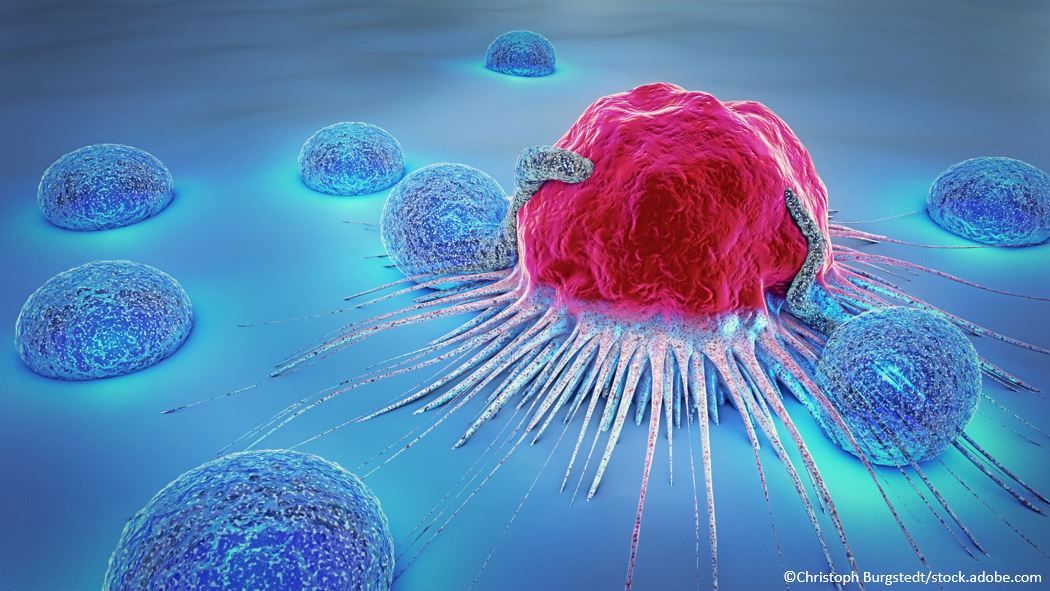- Clinical Technology
- Adult Immunization
- Hepatology
- Pediatric Immunization
- Screening
- Psychiatry
- Allergy
- Women's Health
- Cardiology
- Pediatrics
- Dermatology
- Endocrinology
- Pain Management
- Gastroenterology
- Infectious Disease
- Obesity Medicine
- Rheumatology
- Nephrology
- Neurology
- Pulmonology
Minimal Distress Reported with Multi-Cancer Early Detection Testing: New Findings from PATHFINDER Trial
A new analysis of patient reported outcomes from the PATHFINDER study indicate the potential clinical benefit of early cancer detection.
©Christoph Burgstedt/AdobeStock

GRAIL, a healthcare company focused on early cancer detection, has published findings from the PATHFINDER clinical trial in Lancet Oncology highlighting patient-reported outcomes (PRO) associated with the Galleri® multi-cancer early detection (MCED) test.1
The study assessed patient perspectives on the test, including anxiety, distress, quality of life, and satisfaction with the MCED test over a 12-month period. The results indicated minimal patient distress associated with MCED testing and highlighted the potential clinical benefit of early cancer detection.2
"Previous studies have shown that there is a temporary increase in anxiety symptoms after cancer screening, particularly for those with a test result indicating they may have cancer," lead author Lincoln Nadauld, MD, CEO, Culmination Bio, Inc., said in a January 13, 2025, press release.1 "PRO results in the PATHFINDER study were consistent with other studies and showed the transient nature of the anxiety increase coupled with satisfaction with the screening and commitment to continue their standard screenings along with MCED testing. These encouraging results indicate that MCED could be a valuable tool for early detection with minimal distress for patients."
PATHFINDER was a prospective study that enrolled approximately 6200 healthy ambulatory outpatients at 7 health networks in the US who were aged 50 years and older without clinical suspicion of cancer, with or without additional cancer risk factors. The primary objective was time to diagnostic resolution after an MCED cancer signal detected (CSD) result and extent of testing pursued. The results supported the feasibility of the Galleri MCED.3
“The objectives of the 12-month PATHFINDER study reported here were assessment of patient-reported outcomes and perceptions with MCED testing (the effect of the MCED test result disclosure, general anxiety symptoms, health-related quality of life, and satisfaction with the MCED test),” Nadauld and colleagues wrote.2
Investigators evaluated participants with either a CSD or no cancer signal detected (NCSD) using several validated instruments: the Multidimensional Impact of Cancer Risk Assessment (MICRA) for distress and uncertainty, the PROMIS Anxiety short-form for anxiety symptoms, the Short Form 12-Item Health Survey (SF-12v2) for health-related quality of life, and a satisfaction questionnaire.2
Between December 12, 2019, and December 4, 2020, 6662 participants were recruited for the study, and 6621 eligible participants had analyzable MCED test results (n=92 with CSD, n=6529 with NCSD). The majority of participants were women (63.5%) and White (6071 91.7%).2
For participants completing MICRA at results disclosure, the mean total MICRA score was 28.4 for the 50 patients with a CSD result and 8.8 for those with an NCSD result. General anxiety scores increased at results disclosure in both true-positive and false-positive groups, from baseline scores of 46.2 and 47.3 to 48.4 and 49.7, respectively. Scores returned to near baseline levels by the study’s end (46.8 in the true-positive group and 46.9 in the false-positive group). Mental health scores from the SF-12v2 mental component summary remained within the average general population range at all time points.2
Overall satisfaction with the Galleri test was high, with 5749 (97.1%) of 5920 respondents reporting they were “satisfied,” “very satisfied,” or “extremely satisfied.” Satisfaction was highest among participants with an NCSD result (5698 [97.2%] of 5861), followed by those with true-positive results (23 [92.0%] of 25) and false-positive results (28 [82.4%] of 34). Most participants (5182 [95.6%] of 5418) reported being likely or very likely to follow future cancer screening recommendations from their clinician.2
"Collecting participant perspectives and appropriately supporting recipients of cancer screening may improve adherence rates and early detection,” coauthor Eric Klein, MD, GRAIL, said in the press release.1 “The patient-reported outcome findings from the PATHFINDER study suggest MCED testing is associated with a high level of satisfaction."
The Galleri test, which uses a simple blood draw to identify DNA shed by cancer cells, is intended to complement existing guideline-recommended cancer screenings. It is designed to detect multiple cancer types, including those that currently lack standard screening protocols, such as pancreatic, ovarian, and liver cancers. The test requires a prescription and is recommended for adults aged 50 years and older or those with an elevated risk for cancer.1
References:
1. Patient Reported Outcomes for GRAIL's Galleri® Multi-Cancer Early Detection Blood Test Published in Lancet Oncology. News release. GRAIL, Inc. January 13, 2025. Accessed January 14, 2025. https://investors.grail.com/news-releases/news-release-details/patient-reported-outcomes-grails-gallerir-multi-cancer-early
2. Nadauld L, Klein EA, Chung, KC, et al. Psychosocial impact associated with a multicancer early detection test (PATHFINDER): a prospective, multicentre, cohort study. Lancet Oncol. Published online January 13, 2025. doi:10.1016/S1470-2045(24)00645-4
3. Schrag D, Beer TM, McDonnell CH 3rd, et al. Blood-based tests for multicancer early detection (PATHFINDER): a prospective cohort study. Lancet. 2023;402:1251-1260. doi:10.1016/S0140-6736(23)01700-2
